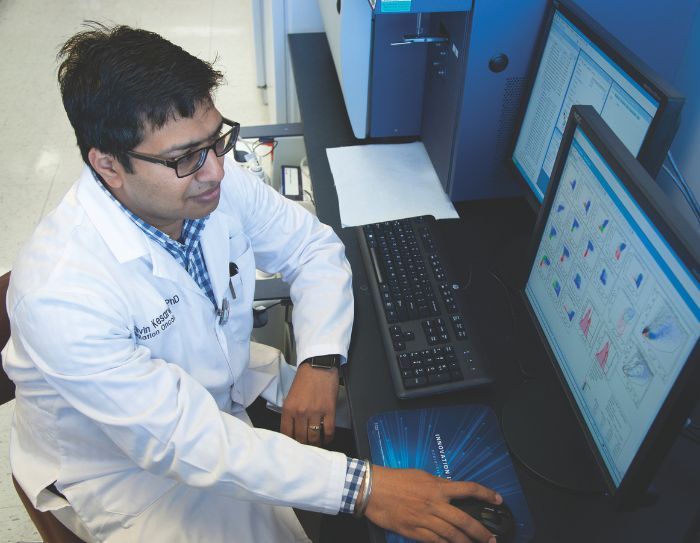AI in Healthcare: Revolutionizing Patient Care in Michigan
Artificial intelligence (AI) is making waves in the healthcare sector, and it’s not just a passing trend. Hospitals in Michigan, like Henry Ford Health and Corewell Health, are navigating a flurry of AI startups eager to showcase their innovative products and services. Healthcare leaders are taking a close look at the offerings and testing out applications that could genuinely enhance patient care.
Uncovering Hidden Insights
One of AI’s standout capabilities is its knack for identifying patterns within massive data sets. This is especially crucial for radiologists and pathologists who rely on X-rays, MRIs, and other medical imaging technologies. Jason Joseph, Chief Digital and Information Officer at Corewell Health, explains, “Machines are really good at seeing patterns in data that we can’t see.”
This capability means AI can detect issues in medical images that a trained human eye might overlook. For instance, it can identify subtle signs of conditions that might not be the primary focus during a scan, providing invaluable insights that lead to earlier diagnoses.
AI-Powered Summaries and Predictive Analytics
Another exciting application of AI in healthcare is its ability to streamline the doctor-patient conversation. AI tools can sift through recordings to extract critical details such as patient history, follow-up questions, and essential appointment information. This technology not only saves precious time for healthcare providers but also enhances the quality of patient care.
Furthermore, predictive analytics is changing the game by enabling healthcare professionals to identify potential issues before they escalate. As Joseph notes, “Often the signs that the patient is deteriorating are very, very subtle.” With AI, the first signs of respiratory distress or drops in blood pressure can be caught early, allowing for timely intervention.
AI is Here to Enhance, Not Replace
A common concern surrounding AI’s rise in the workplace is job security. However, leaders like David Allard, Chief Medical Information Officer for Henry Ford Health, emphasize that AI’s role is to support healthcare workers, not replace them. “Nobody’s worried about their job. They’re worried about getting their job done,” Allard states, reflecting a sentiment shared across the industry. Joseph adds, “I don’t think we’ve seen a lot of AI taking people’s jobs. Those who don’t embrace AI may find themselves at a disadvantage.”
The Future of Healthcare Innovation
As Michigan hospitals explore the myriad possibilities of AI, there’s a consensus that we’re just scratching the surface of what this technology can offer. “We’re in this messy period of figuring it out as an industry,” says Joseph. “We’ll keep what works and phase out what doesn’t.”
Looking ahead, Allard believes that AI integration into everyday tools and processes is inevitable. “AI is going to become part of health care quality and assurance. It’s going to seep into almost everything over time,” he predicts.
Your Role in the AI Conversation
As interest in AI in healthcare continues to grow, it’s an opportune time for individuals to become informed and engaged. The shifts we’re witnessing today will undoubtedly shape the future of medical practices, enhancing patient care and outcomes in ways that we are only beginning to understand.
The AI Buzz Hub team is excited to see where these breakthroughs take us. Want to stay in the loop on all things AI? Subscribe to our newsletter or share this article with your fellow enthusiasts.




